
14 Common Vegetable Gardening Mistakes Newbies Make When Planting their Veggies
Published: 11/11/2022 | Updated: 29/03/2023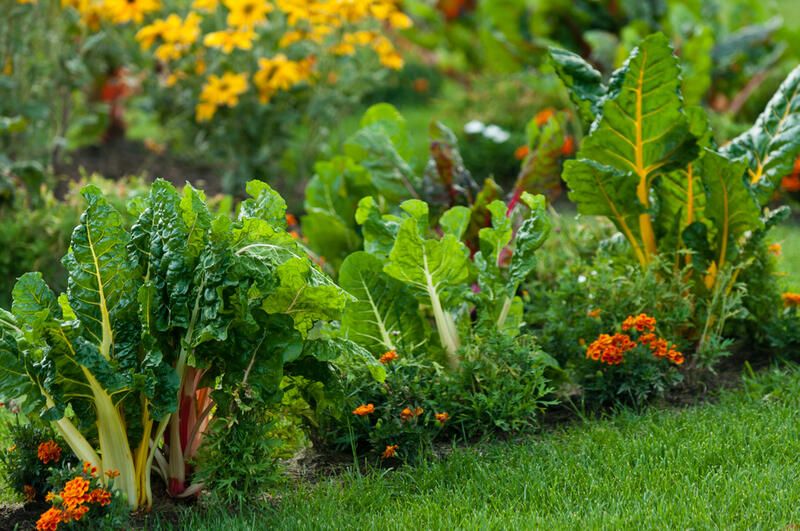
From using poor garden soil to planting bitter crops, read on for tips on how to avoid some of the most common gardening mistakes and make the most of your tasty vegetable gardens!


1. Not being mindful of the weather
Don’t let a luscious spring fool you into thinking that only sunny days lie ahead, rough winds may soon pick up as a seasonal thunderstorm hails your newly planted veggies into flat rebellion.
Well-seasoned gardeners know the weather forecast like the backs of their hands, and are well-prepared for any sudden changes in conditions, setting row covers, cloches, and wind-taming tunnels in place to keep their veggies protected under any weather conditions.
2. Not using containers wisely
It's a common misconception among new gardeners that growing vegetables in pots or raised beds is simpler than growing them in the ground.
Plants inevitably become dwarfed in containers, and plants grown in containers demand continual feeding and watering.
Root temperatures in containers vary daily, and cool-season plants react particularly negatively to very warm roots.
In deeply dug or mulched beds, where soil temperatures are more stable, root temperatures maintain a cool moderate temperature that is optimal for a healthy garden.
On the flip side, warm-rooting plants like peppers and eggplant may do better in pots during chilly summers.
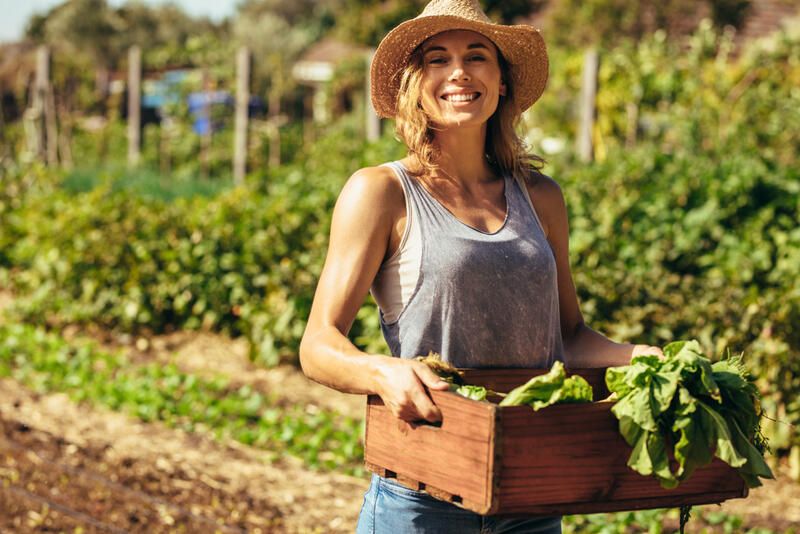
3. Letting weeds take over
Left unchecked, weeds will spread to every open area blessed with soil, sun, and water.
This is great in terms of healing the earth with greenery, but it is bad news for your precious vegetables, as weeds tend to take over any landscape they inhabit and will deprive your plants of water, nutrients, and light.
Weeding is a necessary part of gardening, so keep your weeding tools in good condition, and weed frequently to keep them in check.
4. Planting too early
We’re all eager to get planting, particularly if you are planting tasty vegetables that you are eager to add to the dinner table.
It can be tempting to start planting seeds indoors months too early.
Little seeds, however, swiftly develop into lanky, ravenous seedlings and they will soon start taking up a lot of space in your house, they may also begin to suffer from a lack of sun.
Even if you buy seedlings to start your garden, try to resist the urge to plant them as soon as you bring them home.
Purchasing early may offer you the widest variety of plants, but make sure to have a plan B to protect and harden your garden beds off in case a late frost is forecast.
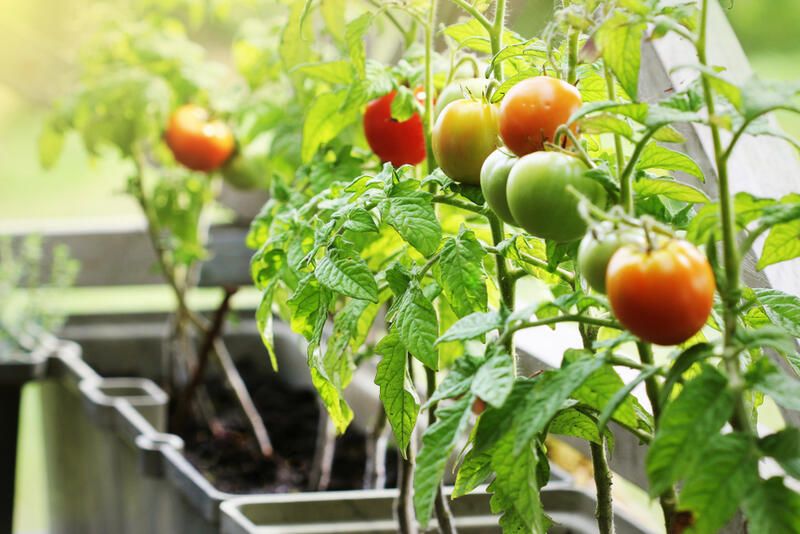
5. Limited light
Plants are solar creatures and rely on sun exposure for most of their energy.
Plants reach optimum growth when each and every leaf receives the full amount of light they can process since leaves are the plant’s solar panels.
This is why you should place your garden in the sunniest location possible where they can enjoy at least six hours of full sun and why you need to weed out crowded seedlings so none of them are left without light.
6. Using poor soil
Your garden's soil composition is crucial to the health of your plants since they depend on an ideal balance of acidity and alkalinity. These factors will determine your soil fertility.
Nitrogen, phosphorus, and potassium are the three essential nutrients that must be present.
High-quality soil will also include a wealth of invaluable secondary micronutrients that will support the growth of most vegetables.
Most landscaping agencies will offer an affordable or free soil test service to help determine whether you need to upgrade yours.
If your soil is poor, to begin with, you will have an extra struggle on your hands all season.
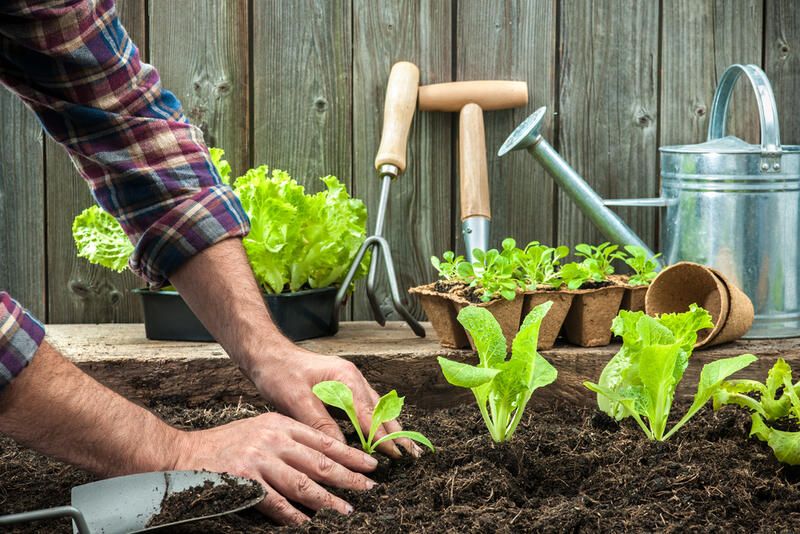
7. Trying to do too much
It can be difficult to resist the seed catalogs when it is freezing outside and there is snow on the ground.
Rookie vegetable gardeners are particularly prone to planting more than they can eat or maintain.
Caring for a large healthy vegetable garden is a lot of work, so although you may be tempted to buy half the seed catalog, try instead to be prudent with your purchases and invest your energy in keeping a successful small vegetable garden rather than struggling with a large one.
8. Forgetting about spacing
A freshly planted garden with adequate spacing will have a lot of exposed soil.
Vegetable seeds, such as lettuce, beets, and carrots can be sown closely and thinned as they mature.
At maturity, plants that can be planted as seedlings—like tomatoes and peppers—as well as big, bushy plants—like maize and beans—will require a lot more room.
If these veggies are packed too tightly, sunlight and airflow will be restricted, which will probably result in disease and poor yields.
Certain plants demand more space than others.
A garden that includes squash, cucumbers, and pumpkins, for example, will need a lot of spacing as their vines can grow to over a dozen feet in each direction.
9. No fencing
Local wildlife may mistake your delicious veggie garden for their dinner.
Overnight, herbivores like rabbits, groundhogs, and deer can devour the contents of your entire garden if you don’t protect them.
A strong garden fence is essential to prevent that from happening. You’ll also need to match your fence type to the kind of animals that are likely to eat your produce.
A low fence will not stop a deer that can leap over it to get at your precious greens, so you’ll want to install a high fence, an electric fence, or a double fence that will discourage them from jumping in for fear of getting trapped.
Groundhogs, rabbits, chipmunks, and other burrowing species will need an above-ground fence that is at least three to four feet tall in addition to a foot or so of the buried fence.
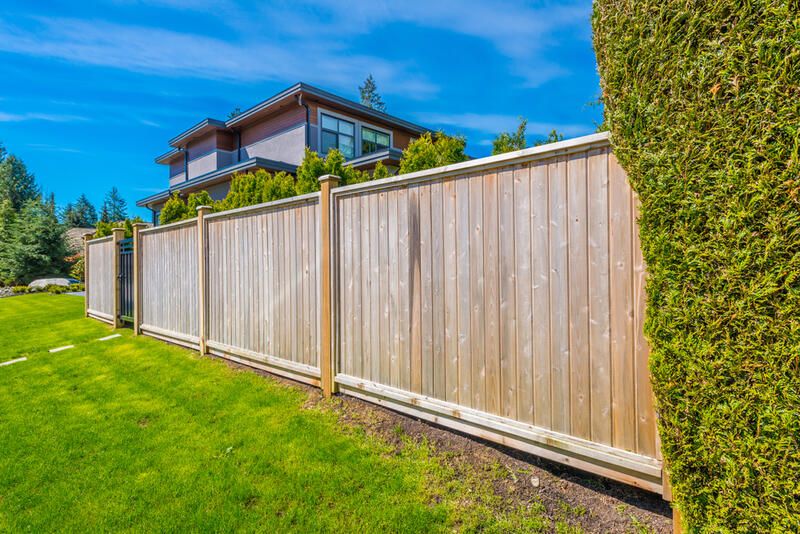
10. Making a hasty exit
There is a learning curve associated with every new hobby, and gardening is no exception.
Give yourself time to learn about your favorite plants and good gardening practices, and connect with other gardeners to find out about the kinds of crops that thrive in your region.
Where there’s a will, there’s a way, and after a few seasons of focused practice, you’ll soon make your way from novice to expert.
11. Not matching your plants to the local climate
Gardeners who are setting out to plant their first vegetables will often make the mistake of cultivating the plants they want to eat but bear in mind that your favorite greens may not be suited to your local climate.
Try to make sure that the veggies you select are suited to the climate zone in which you live.
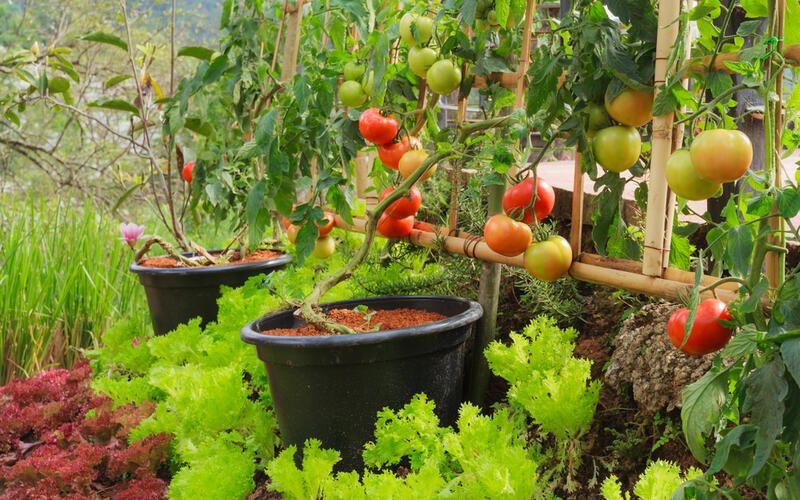
12. Not succession planting
One of the best strategies to guarantee a consistent harvest is succession planting.
By planting little rows every two weeks as opposed to a single long row at the start of the season, you can extend the length of your lettuce crop.
Planting certain crops, like maize and beans in long rows or blocks will result in a more fruitful harvest as these plants rely on external factors like insects and wind to pollinate.
Beginner gardeners frequently wrongly assume that they can just grow any species of vegetable, believing that it will be delicious, forgetting that there are a plethora of distinct varieties of each crop.
It can be difficult for newbies to discern which plants will actually taste good, but blindly planting any given type of “carrot” or “tomato” can leave you with a dissatisfied palate. Do your homework and choose your veggies wisely!
13. Planting tasteless crops
Less experienced gardeners frequently wrongly assume that they can just grow any species of vegetable, believing that it will be delicious, forgetting that there are a plethora of distinct varieties of each crop.
It can be difficult for newbies to discern which crops will actually taste good, but blindly planting any given type of “carrot” or “tomato” can leave you with a dissatisfied palate.
Do your homework and choose your veggies wisely!
14. Over-digging garden soil
A common mistake people make when setting out to create creating a new vegetable garden is to get a shovel and dig up a fresh section of grass.
But more experienced gardeners know that disturbing the soil in this way is not only unnecessary but also counter-productive.
No-dig gardening is a gardening technique that can produce abundant crops in a vegetable garden while also preserving the soil's fertility.
A no-dig gardening approach keeps the amount of disruption to the ecosystem that is supporting your vegetable plants to an absolute minimum.
By avoiding digging in and disturbing the soil, you may be surprised by how well your plants can do.


